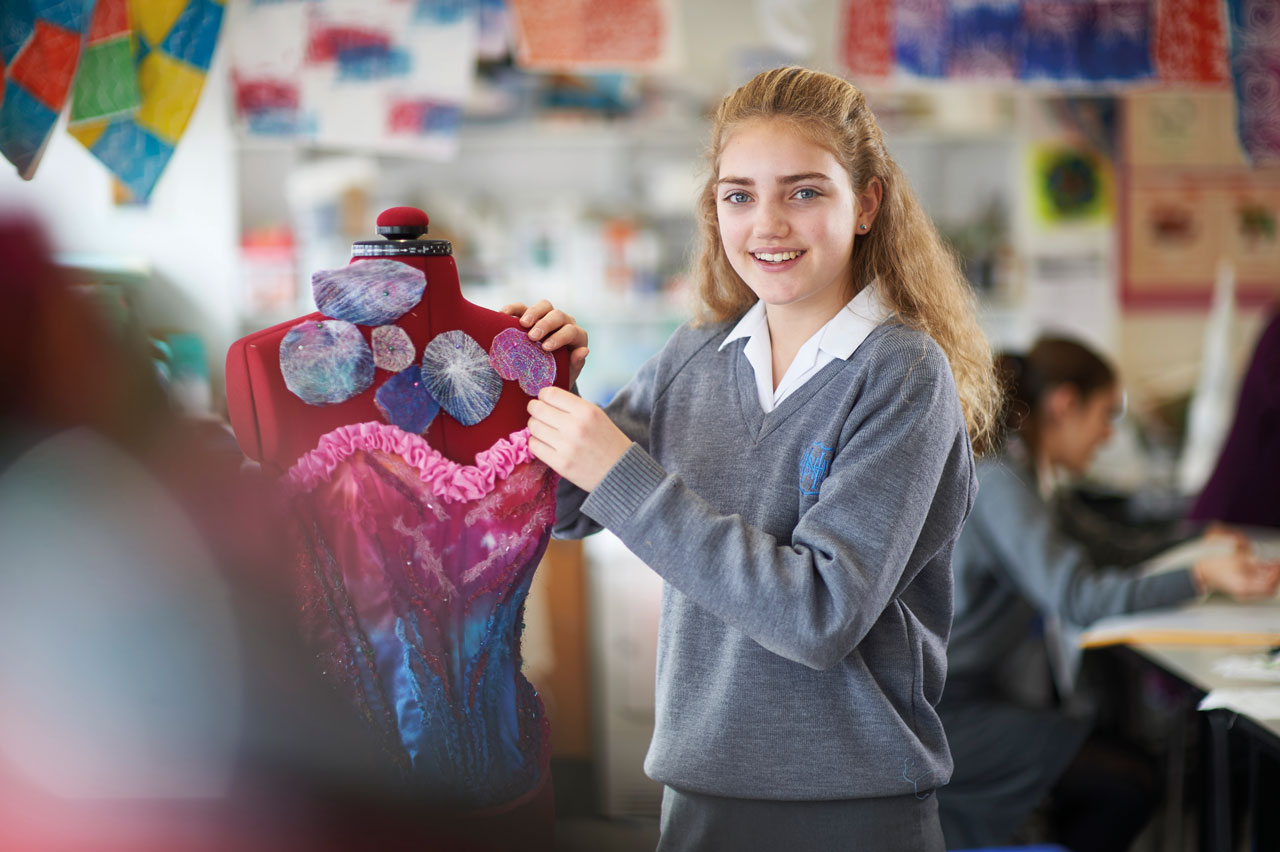Schools as Businesses – The Low Down
By
7 years ago
The Bottom Line: Parents don’t care whether schools are run as businesses or have charitable status – as long as they get results, finds Melanie Cable-Alexander

Has Prince George attending one of the Thomas’s group of schools in London unwittingly highlighted an issue being discussed by parents?
Sam Antrobus, executive chairman of The Wishford Group of Schools, certainly thinks it might have done. ‘I don’t know, but groups of schools and particularly those run as business ventures have become more prominent thereby fuelling a debate into how schools can run as an academic and pastoral enterprise as well as a business.’
Thomas’s is resolutely a family-run group with four prep schools in London (Battersea, Kensington, Fulham and Clapham), as well as one kindergarten, and sits in what Antrobus calls ‘the grey area’ of the subject just as his own schools are. His own family enterprise covers seven preparatory schools.
More clear-cut as business enterprises are the group schools led by organisations with an openly capitalist ethos at their core. Sovereign Capital, one of the leading umbrellas behind some top UK independent schools, is an example. The company’s motto is ‘The UK Buy & Build Specialist’, which makes it sound like a real estate enterprise – great for investors but slightly off-putting for parents.
The education and training wing of its website is listed as part of its ‘Portfolio’ and celebrates its numerous ‘Investor of the Year’ titles even before the name of a school is mentioned.
Corporate speak like this can be intimidating when over 80 per cent of our independent schools hold charitable statuses and can inspire some worrying queries among parents already quizzical about how their hard-earned fees are being spent.
So let’s cut to the chase and ask the awkward questions which hover behind parents’ concerns. How can profit-motivated business ventures provide the same level of pupil care for a child as an individual school with charitable status? Does a child lose out being educated by a profit-motivated business model? What is the impact of a school being run as a business venture on our children’s education?
Schools run by a group have existed for centuries. Tonbridge School has been part of the Worshipful Company of Skinners for several centuries. Other livery companies have their own schools too. Then there are the Methodist Schools (MIST for short), which own seven independent schools and ten state.

Tonbridge School, Kent has been part of the Worshipful Company of Skinners for several centuries
But then, in 2004, Cognita entered the arena and now has a mighty 67 schools within its ‘family’ educating 30,000 pupils in the UK and abroad. Seemingly, overnight parents became ‘customers’.
Other groups rapidly followed including international ones like the mighty GEMS Education, which was founded as a family tutoring business in Dubai and now has over 250 schools in 13 countries. Former US President Bill Clinton has named GEMS Education a strategic partner of the Clinton Global Initiative. The independent chairman of its board of directors is Sir Michael Peat, former private secretary to Prince Charles.
A relative newcomer that has thrust to the forefront of the horizon is Hassan Inc which has not just one but three education companies, each with their own niche groups of schools.
Hassan Inc is run, founded and owned by the vibrant and extremely hands-on former Army and City man Aatif Hassan who says ‘we’ve gone from a piece of paper to a £50 million turnover in 50 months’.
His latest project was to open Eaton Square Upper in September 2017 in a Grade 1-listed former French Ambassador’s house in Mayfair that cost £5 million to refurbish. He fought hard to acquire the school and it is already over-subscribed, which provides a clue to the benefit a school run with business aplomb can have for its pupils; money gained can be reinvested.
In Hassan’s view: ‘there is a machine behind the scenes that powers the schools and operates the back office. This allows our Heads to focus on what they are good at – education. Why would you not take the opportunity to get experts and the best in their field to do what they are good at?’
When I ask Hassan what happens to profits made by his enterprises, he responds robustly: ‘Our ambitions are very long term and as a result, we have been reinvesting all [he underlines] of our surpluses into capital-related and growth projects. This benefits our pupils very tangibly and perhaps at a pace which would be more challenging for a not-for-profit organisation.
We have no intention of changing this strategy – it’s working.’
His perspective is mirrored by Mark Hanley-Browne, CEO of the Alpha Plus Group. ‘If Wetherby School was a standalone school not owned by Alpha Plus, there would probably be no Wetherby Preparatory School or Wetherby Senior School. This is because Alpha Plus has the ability to raise finance in order to create new schools.’ Parents therefore view the group positively.

Chepstow House, London, is an Alpha Plus Group school
From a head’s point of view, being part of an organisation provides considerable benefits: they cite ‘protection’, ‘support’, ‘a place to sift through and absorb new ideas’ and most importantly ‘receive help’ through an ‘access to a broader HR [human resources] area’, and ‘by getting updates on the latest legal regulations’.
Jill Walker, headmistress of St Nicholas Preparatory School, Kensington, used to be deputy head at Glendower, a standalone girl’s prep school in South Kensington, London, and is one of Cognita’s latest recruits and converts. She’s bubbling over with enthusiasm having attended a four-day seminar for Cognita’s heads. ‘I’ve come away with some really good ideas. In a standalone you can’t do that as other schools may be regarded as competitors.’
London, as always, is the hub of educational change and the centre for most umbrella-owned schools from which others fan out, despite Cognita’s first school being in Northamptonshire. From a commercial point of view, viability of acquiring independent schools increases if you are located inside the M25.
There has been an accusation that some group-owned schools, stamp one individual print of how each school should operate as opposed to developing and adapting an individual school’s character and strengths.
‘It is easy for schools within groups to lose their individual identity,’ comments Ralph Lucas, editor of the popular parents bible The Good Schools Guide. However ‘this can be a good thing’. In some cases, such as Thomas’s, maintaining a distinctive brand is crucial.
Cognita, on the other hand, makes sure that ‘each of our schools are different’, says Simon Camby, global director of education and a former lead Ofsted inspector. ‘We don’t conform to a set model. I always describe our organisation as like a family in that they may include people with dark hair, light hair, one likes tea, the other coffee and so on. That’s the way we approach our schools.’
Instead ‘our framework is about academic issues, building a child’s character, and encouraging a global outlook, something which we can foster given our number of overseas schools. Those three methods help prepare children for their future.’
It says much for the system that David Woodgate, chief executive of the Independent Schools Bursars Association is much in favour of the rise in the number of groups running schools, seeing it as a ‘win win’ situation with many positive advantages apparent in the bottom line.
‘Many independent schools are looking at their business models, and all the increasing costs being levied at schools. We can’t keep passing on such financial burden to parents who are clearly sensitive to such costs anyway.’
Several events, he continues, ‘can make parents nervous; the loss of a head, a favourite teacher. These can make a big difference to the perception of a school. Being part of a group is just another change.’

Cognita has 67 schools worldwide, including the North Bridge House schools
But he believes that as parents come to understand better how the system works and trust in the continued excellent standards of these schools who offer value for money as transparently as their individually owned competitors, they will become more accepting of this new change. It does not, of course, mean that this new business model is right for every school.
‘We have a thousand schools in our group and one size doesn’t fit all,’ explains Woodgate. ‘Some suit standalone, others might be better as part of a team. Very often this depends on the size, ethos and location of a school.’
Ralph Lucas is also reassuring. ‘From a parents’ point of view, if a school has been a member of a group for a while, it is possible to get a feel of what the relationship is between school and group by asking questions when they visit schools. These can include: “What does the group bring to the school? What influence does it have on setting policies, choosing the curriculum, enforcing discipline, selecting a new head?”’
Lucas would like to see more senior schools ‘acquire or merge with feeder prep schools and likewise standalone preps should take on nurseries. Franchising and the overseas markets are not available to all and therefore securing numbers at home is becoming ever more crucial.
‘There are other alternatives to growth such as niche markets in special needs, aesthetic and sporting pursuits but sustainable admissions remains key. It requires serious professional intent to assure delivery.
‘Bigger might not necessarily always mean better but in the case of education, the synergies available for pedagogical development, pupil welfare, cultural pursuits and the shared cost of compliance probably mean it is.’
Ultimately, both group and independent schools are attractive options for parents but the decision depends on the child, personal family beliefs and location. Louise Reina, a Wetherby Senior School parent and also a leading figure in a major FTSE 100 organisation, had absolutely no hesitation in joining a corporate-owned school when her son was due to move schools: ‘Wetherby Senior would not have been built were it not for Alpha Plus. Why then should I be concerned whether being group-owned is a force for good or not? It’s a successful venture.’
The only bottom line to consider is the right classroom seat for the child.
This article originally appeared in the SS18 issue of School House.
READ MORE: Irish Schools: A Celtic Education | The Charitable Status Debate



